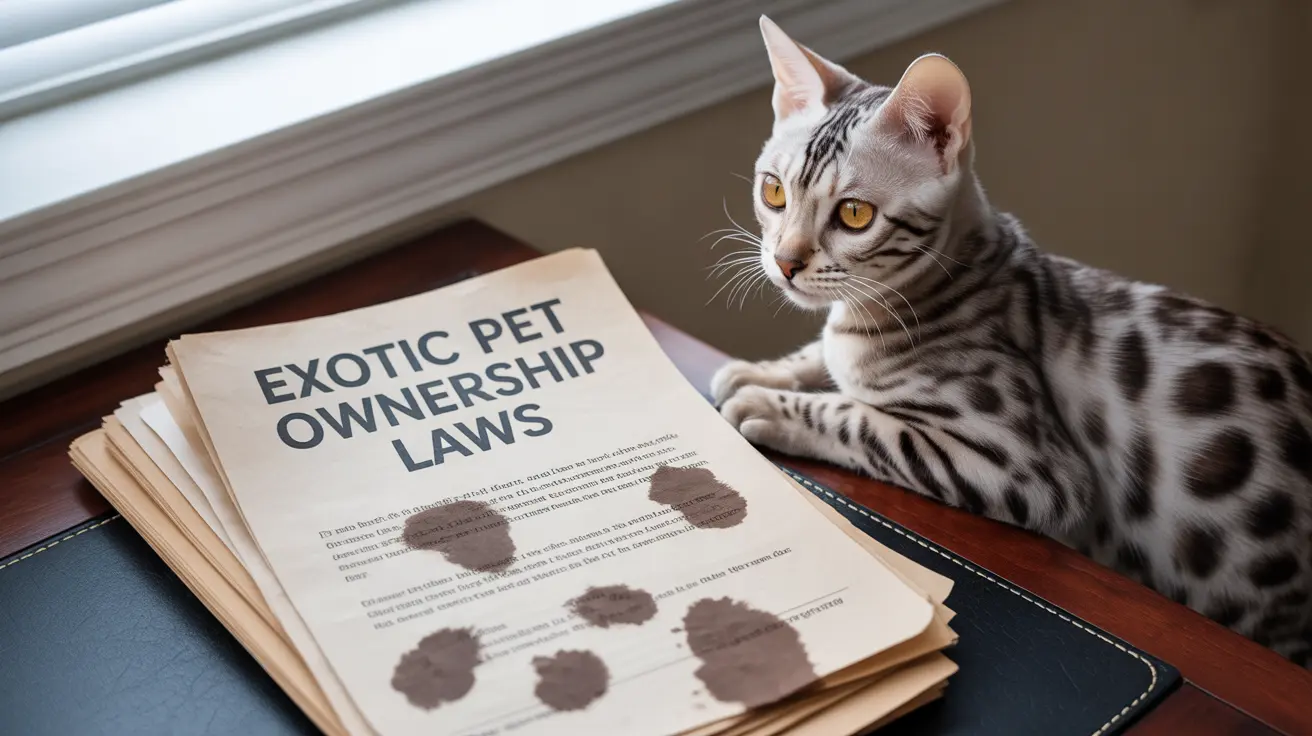Understanding Serval Cat Regulations in California
California maintains some of the nation's strictest exotic animal ownership laws. Pure serval cats are explicitly prohibited for private ownership under California's Fish and Game Code. These regulations exist to protect both public safety and the welfare of these wild animals.
The state classifies servals as wild or exotic animals, making their possession illegal without specific permits typically reserved for zoos, research facilities, and other professional institutions. Private individuals cannot legally keep servals as pets under any circumstances.
Legal Alternatives: Savannah Cats in California
While pure servals are banned, California takes a surprisingly permissive stance on Savannah cats, which are hybrids between domestic cats and servals. All generations of Savannah cats, from F1 through later generations, are legal to own in California.
This creates an interesting distinction where you can legally own a first-generation Savannah cat (F1) with up to 75% serval genetics, but cannot own a pure serval. This policy differs from many other states, which often restrict ownership to later generations with lower percentages of wild genetics.
Penalties and Enforcement
California takes violations of exotic animal laws seriously. Those caught illegally owning a serval cat may face:
- Substantial fines
- Confiscation of the animal
- Potential criminal charges
- Possible jail time depending on circumstances
Understanding the Differences: Servals vs. Savannah Cats
Servals are wild African cats weighing 20-40 pounds, characterized by their long legs, spotted coats, and athletic builds. They retain their wild instincts and behaviors, making them unsuitable as pets. Savannah cats, while inheriting some wild traits, are generally more adaptable to domestic life, especially in later generations.
Key differences include:
- Size and weight variations
- Behavioral tendencies
- Care requirements
- Legal status
- Domestication level
Responsible Ownership Considerations
If you're interested in exotic cat ownership in California, consider these factors:
- Research Savannah cat generations and their specific needs
- Ensure you can provide appropriate space and enrichment
- Budget for specialized veterinary care
- Understand the long-term commitment required
- Verify local municipal regulations, which may have additional restrictions
Frequently Asked Questions
Is it legal to own a pure serval cat in California?
No, pure serval cats are completely illegal for private ownership in California. The state classifies them as wild animals, and only authorized facilities like zoos can possess them legally.
Are Savannah cats legal to own in California, and do any generation restrictions apply?
Yes, all generations of Savannah cats are legal to own in California, from F1 through later generations. There are no generation restrictions in place.
What are the key legal differences between owning a serval cat versus a Savannah cat in California?
While serval cats are entirely prohibited for private ownership, Savannah cats of any generation are legal to own. The key distinction lies in their classification - servals are considered wild animals, while Savannahs are classified as domestic hybrid cats.
What penalties could I face for illegally owning a serval cat in California?
Illegally owning a serval cat in California can result in significant fines, animal confiscation, and possible criminal charges. In serious cases, violators may face jail time.
How do the care and behavior needs of Savannah cats compare to pure serval cats for California pet owners?
Savannah cats, while still demanding, are generally easier to care for than pure servals. They require less space, adapt better to domestic life, and have more manageable dietary needs. However, they still need significant attention, exercise, and environmental enrichment, especially in earlier generations.






